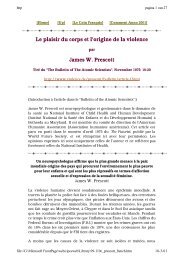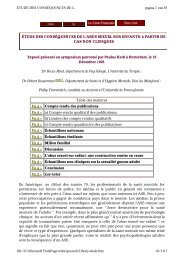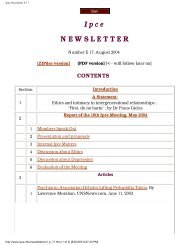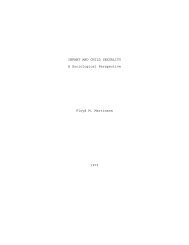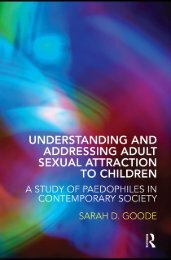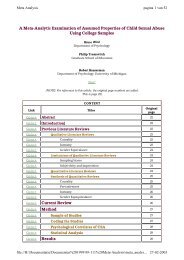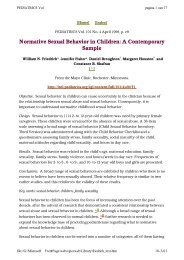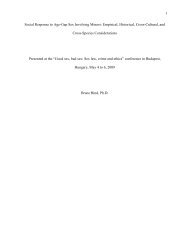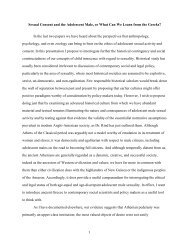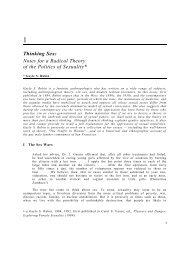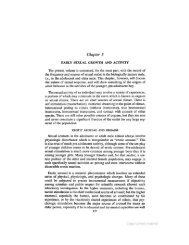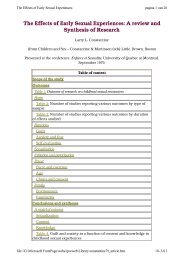PDF file - Ipce
PDF file - Ipce
PDF file - Ipce
Create successful ePaper yourself
Turn your PDF publications into a flip-book with our unique Google optimized e-Paper software.
http://home.wanadoo.nl/ipce/newsletters/e_14/gie_ethics.htm<br />
consider this risk, as well as the risk of blackmail. The adult as well as the young person is<br />
vulnerable in this society nowadays.<br />
Concluding remarks<br />
My conclusion, and that of several members, is that intimacy in intergenerational relationships<br />
in our society nowadays, has the risk to harm both partners - perhaps not through the<br />
relationship itself, but by society's reaction to it. Taking this into consideration, I suppose that<br />
such intimacy, maybe ethically correct in itself, will be quite uncommon these days.<br />
‘Platonic’ relationships may be a reasonable choice, but these relationships still include the<br />
hidden implication that sex is dirty and taboo.<br />
Not only young gays and lesbians, but also young people in a phase of hetero- or<br />
homosexuality, need relationships to explore their orientation and to develop self-knowledge<br />
and self-respect. It is their right to have them. They do not deserve rejection. Harm may result<br />
from a relationship and society’s reaction to it. Harm is also possible by rejection and by not<br />
having relationships at all. One should as honestly as possible estimate if any harm might arise.<br />
The leading principle remains Do no harm.<br />
Every person and situation is different. Young people change in the course of their<br />
development from child to adult. Use your own best judgment and that of your partner in any<br />
individual case.<br />
[Home] [Articles & Essays - G] [Newsletter E 14]<br />
http://home.wanadoo.nl/ipce/newsletters/e_14/gie_ethics.htm (3 of 3) [10/16/2002 5:33:27 PM]



